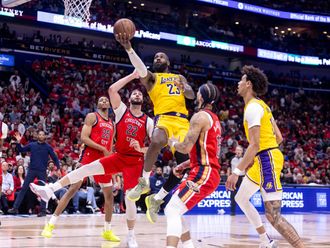Lausanne: Thirty-one athletes from 12 countries failed doping tests after new analysis of samples taken from the 2008 Beijing Olympics and could be banned from the Rio Games, the IOC said on Tuesday.
The 31, who took part in six different sports, were among 454 samples retested following a new wave of doping scandals to hit international sport.
The International Olympic Committee executive board “today agreed unanimously to initiate proceedings immediately,” said an IOC statement.
“All those athletes infringing anti-doping rules will be banned from competing at the Olympic Games Rio 2016.”
The new tests focused on athletes who could take part in the Rio Olympics, which start on August 5. The IOC said “the very latest scientific analysis methods” were used for the new examination of the samples.
The results from 250 retest from samples taken at the 2012 London Games are due “shortly” and mean the total failures could increase.
The IOC also warned that it will start “a wider retesting programme of medallists from Beijing and London. The samples of those athletes, who could be awarded medals following the disqualification of others, will also be retested.”
The IOC board demanded that the World Anti-Doping Agency (WADA) start “a fully fledged investigation” into allegations that samples taken at the Sochi Winter Olympics in 2014 were “subverted” by Russian athletes.
IOC president Thomas Bach called the allegations made against the Sochi laboratory “worrying”.
The statement said new tests of Sochi samples will be carried out at the Lausanne anti-doping laboratory, where the Sochi samples are stored for 10 years.
“We keep samples for 10 years so that the cheats know that they can never rest,” said IOC president Thomas Bach.
“All these measures are a powerful strike against the cheats we do not allow to win,” he added.
“They show once again that dopers have no place to hide.”
Bach called the new measures “another major step to protect the clean athletes irrespective of any sport or any nation.”












